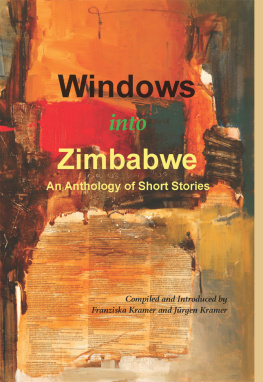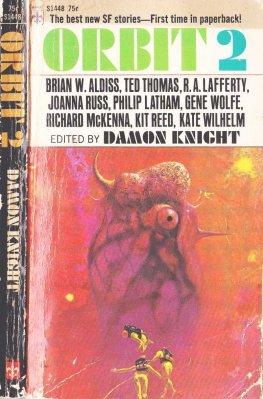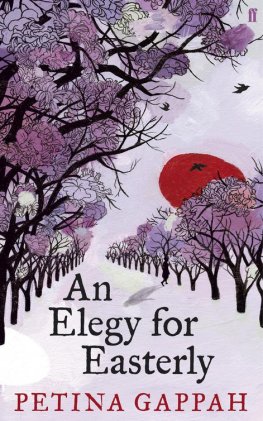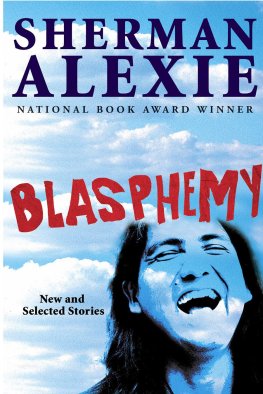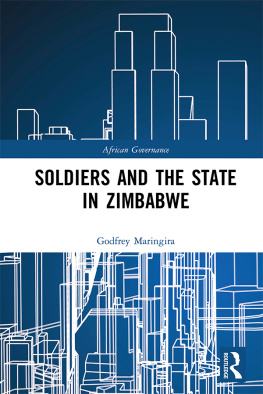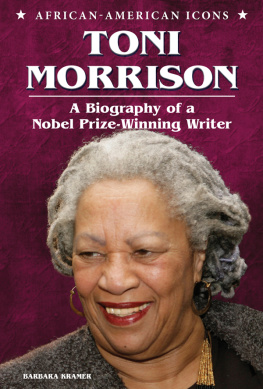
Windows
into
Zimbabwe
Windows
into
Zimbabwe
Compiled and introduced by
Franziska Kramer
and Jrgen Kramer

Published by
Weaver Press, Box A1922, Avondale, Harare, 2019
This compilation Franziska Kramer and Jrgen Kramer
Each individual story, the author.
(See appendix for story provenance.)
Typeset by Weaver Press
Cover illustration Untitled courtesy of Edsor Colaco and photograph by kind permission of David Brazier
Cover Design: Myrtle Mallis, Harare.
Printed by: Bidvest, South Africa.
Distributed in South Africa by Jacana Media
All rights reserved. No part of the publication may be reproduced, stored in a retrieval system or transmitted in any form by any means electronic, mechanical, photocopying, recording, or otherwise without the express written permission of the publisher.
ISBN: 978-1-77922-348-7 (p/b)
ISBN: 978-1-77922-349-4 (ePub)
ISBN: 978-1-77922-369-2 (h/b)
CONTENTS
*

Franziska Kramer was born and raised in Germany. In 2006 she went to Berlin to study African Literatures and Social Science at Humboldt University. While still a student, she worked as a research assistant and also did an internship with Weaver Press publishers in Harare, Zimbabwe. Here, her real interest in and deep feeling for southern African literatures developed, and in 2010, she obtained an MA in Postcolonial Literatures and Cultures at Leeds University, UK. Since then she has returned many times to Zimbabwe for various projects with the Harare International Festival of the Arts, the Culture Fund or when doing academic research. In 2011-12 she worked in the culture department of the German Zimbabwe Society in Harare. Since 2014 she has taught English and Political Science at the Evangelische Schule Berlin Zentrum and lives with her partner in Berlin Schneberg.

Jrgen Kramer is Professor Emeritus of British Cultural Studies at the University of Dortmund. His main research areas have been the history of the British Isles and the British Empire, the sea as a cultural space, transatlantic slavery, literatures of sub-Saharan Africa and the Pacific, cultural memory, anti-colonial resistance, Joseph Conrad and Robert Louis Stevenson. Among his publications are Cultural and Intercultural Studies (1990), BritishCultural Studies (1997), Britain and Ireland. A Concise History (2007), Taking Stock (2011) and (together with Werner Hennings and Uwe Horst) Die Stadt als Bhne: Macht und Herrschaft im ffentlichen Raum von Rom, Paris und London im 17. Jahrhundert [The City as a Stage: Power and Hegemony in the Public Spheres of Rome, Paris and London in the Seventeenth Century] (2016). From 1994 to 2006 he co-edited the Journal for the Study of British Cultures.
The idea for this compilation arose during a joint trip to Zimbabwe in 2016. We, father and daughter, both delight in reading literary texts of all kinds, discovering new and unheard voices, discussing their potential and hidden meanings, and debating their possible interpretations. We have thoroughly enjoyed our work on this collection with all its many turns, its wonderful moments of mutual understanding, its demanding processes of negotiation and their eventually happy compromises.
Jonathan Brakarsh is an author, teacher, and health professional. He has written four professional books. His most recent book is Singing to the Lions A guide to overcoming fear and violence in our lives (Catholic Relief Services, Harare, 2017) which has been translated into several languages including Arabic and Hindi. He is proud to be published for a third time in a Weaver anthology of Zimbabwean writers. He is currently working on a childrens book, a play, and a collection of short stories.
NoViolet Bulawayo was born, raised and schooled in Zimbabwe. She attended university in the USA, completing a Master of Fine Arts in Creative Writing at Cornell University in 2010 where her work was recognised with a Truman Capote Fellowship. In 2011 she won the Caine Prize with her story Hitting Budapest, which became the opening chapter of her novel We Need New Names (Chatto and Windus, 2013) which was selected for the 2013 Man Booker Prize shortlist, making Bulawayo the first black African woman and the first Zimbabwean to be shortlisted for the prize. Among other awards, she also won the Etisalat Prize for Literature and the Hemingway Foundation/PEN Award. She is currently Writer in Residence at Stellenbosch University in South Africa.
Brian Chikwava is a London-based Zimbabwean writer. His short story, Seventh Street Alchemy, included in this collection, won the Caine Prize for African Writing in 2004. He is an associate editor of Wasafiri magazine and a fellow of the Stellenbosch Institute of Advanced Studies.
Julius Chingono (1946-2011) was born on a commercial farm in Zimbabwe. Leaving school at fourteen, he worked for most of his life on the mines as a blaster. He wrote one novel, Chipo Changu (1978), an award-winning play, Ruvimbo (1980), and a collection of poetry and short stories, Not Another Day (Weaver Press, 2006). His poetry in Shona and English was published extensively in anthologies, and on the Poetry International website.
Shimmer Chinodya (1957) was born in Gweru, the second child in a large, happy family. He studied English Literature and Education at the University of Zimbabwe. After a spell teaching and with curriculum development, he earned an MA in Creative Writing from the Iowa Writers Workshop.
His first novel, Dew in the Morning (Mambo Press, 1982) was followed by Farais Girls (College Press, 1984), Child of War (under the pen name B. Chirasha, (College Press, 1986), Harvest of Thorns (Baobab Books, 1989), Can We Talk and other stories (Baobab Books, 1998), Tale of Tamari (Weaver Press, 2004), Chairman of Fools (Weaver Press, 2005), Strife (Weaver Press, 2006), Tindos Quest (Longman, 2011), Chioniso and other stories (Weaver Press, 2012) and Harvest of Thorns Classic: A Play (Longman, 2016). His work appears in numerous anthologies. Chinodya has also written educational texts and manuals, and radio and film scripts, including one for the feature film, Everyones Child (1996). He has won many awards, including the Commonwealth Writers Prize (Africa Region) for Harvest of Thorns, the Caine Prize shortlist for Can We Talk and the NOMA Award for Publishing in Africa for Strife. He has also won awards from ZIWU, ZBPA and NAMA, and has received many fellowships abroad. From 1995-97, he was Distinguished Dana Professor in Creative Writing and African Literature at the University of St Lawrence in upstate New York.
Erasmus Chinyani was born in Goromonzi, the last born in a family of eleven. He attended St Peter Claver primary and secondary schools. On leaving school, he worked for a printing company and studied in the evening, passing both his O- and A- levels in this way. He then took an electric engineering course at the Harare Polytechnic and worked with the Ministry of Construction from 1990-1996. During this time, he took a part-time correspondence courses in Freelance Journalism and Short Story Writing. He has had his short stories published in
Next page
